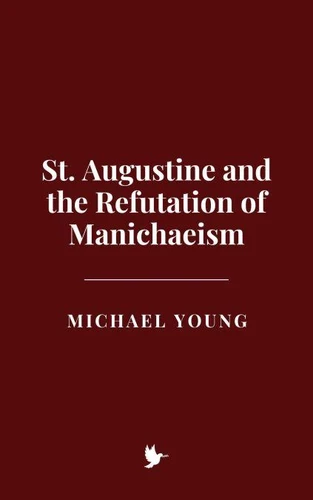St. Augustine and the Refutation of Manichaeism
Par :Formats :
Disponible dans votre compte client Decitre ou Furet du Nord dès validation de votre commande. Le format ePub est :
- Compatible avec une lecture sur My Vivlio (smartphone, tablette, ordinateur)
- Compatible avec une lecture sur liseuses Vivlio
- Pour les liseuses autres que Vivlio, vous devez utiliser le logiciel Adobe Digital Edition. Non compatible avec la lecture sur les liseuses Kindle, Remarkable et Sony
 , qui est-ce ?
, qui est-ce ?Notre partenaire de plateforme de lecture numérique où vous retrouverez l'ensemble de vos ebooks gratuitement
Pour en savoir plus sur nos ebooks, consultez notre aide en ligne ici
- FormatePub
- ISBN8230635901
- EAN9798230635901
- Date de parution18/02/2025
- Protection num.pas de protection
- Infos supplémentairesepub
- ÉditeurIndependently Published
Résumé
This book delves into the theological, philosophical, and political contributions of Augustine of Hippo, exploring his profound impact on Christian thought and Western intellectual history. It covers the breadth of his intellectual journey, beginning with his early immersion in Manichaeism and culminating in his deep embrace of Christian orthodoxy. The work examines Augustine's complex doctrine of original sin, his exploration of the problem of evil, his reflections on grace, free will, and salvation, as well as his extensive writings on the Church's role in society and history.
Augustine's political thought, encapsulated in his City of God, offers a comprehensive vision of the relationship between the sacred and the secular, emphasizing the distinction between the eternal City of God and the temporal City of Man. By analyzing primary sources, key ideas, and historical context, this book illuminates Augustine's lasting legacy in Christian theology and his contributions to philosophy, political theory, and the understanding of the human condition.
Through rigorous analysis, it shows how Augustine's reflections on grace, evil, salvation, and the nature of the Church continue to shape Christian thought today, making him one of the most influential thinkers in the history of Western thought.
Augustine's political thought, encapsulated in his City of God, offers a comprehensive vision of the relationship between the sacred and the secular, emphasizing the distinction between the eternal City of God and the temporal City of Man. By analyzing primary sources, key ideas, and historical context, this book illuminates Augustine's lasting legacy in Christian theology and his contributions to philosophy, political theory, and the understanding of the human condition.
Through rigorous analysis, it shows how Augustine's reflections on grace, evil, salvation, and the nature of the Church continue to shape Christian thought today, making him one of the most influential thinkers in the history of Western thought.
This book delves into the theological, philosophical, and political contributions of Augustine of Hippo, exploring his profound impact on Christian thought and Western intellectual history. It covers the breadth of his intellectual journey, beginning with his early immersion in Manichaeism and culminating in his deep embrace of Christian orthodoxy. The work examines Augustine's complex doctrine of original sin, his exploration of the problem of evil, his reflections on grace, free will, and salvation, as well as his extensive writings on the Church's role in society and history.
Augustine's political thought, encapsulated in his City of God, offers a comprehensive vision of the relationship between the sacred and the secular, emphasizing the distinction between the eternal City of God and the temporal City of Man. By analyzing primary sources, key ideas, and historical context, this book illuminates Augustine's lasting legacy in Christian theology and his contributions to philosophy, political theory, and the understanding of the human condition.
Through rigorous analysis, it shows how Augustine's reflections on grace, evil, salvation, and the nature of the Church continue to shape Christian thought today, making him one of the most influential thinkers in the history of Western thought.
Augustine's political thought, encapsulated in his City of God, offers a comprehensive vision of the relationship between the sacred and the secular, emphasizing the distinction between the eternal City of God and the temporal City of Man. By analyzing primary sources, key ideas, and historical context, this book illuminates Augustine's lasting legacy in Christian theology and his contributions to philosophy, political theory, and the understanding of the human condition.
Through rigorous analysis, it shows how Augustine's reflections on grace, evil, salvation, and the nature of the Church continue to shape Christian thought today, making him one of the most influential thinkers in the history of Western thought.























